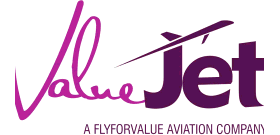 ValueJet Pilots Suspended: Safety Breach Highlights Nigerian Aviation Oversight
ValueJet Pilots Suspended: Safety Breach Highlights Nigerian Aviation Oversight
The Nigeria Civil Aviation Authority (NCAA) has taken decisive enforcement action against two ValueJet pilots following a serious safety protocol violation at Abuja's Nnamdi Azikiwe International Airport. Captain Oluranti Ogoyi and First Officer Ivan Oloba had their licenses suspended with immediate effect after commencing departure procedures without mandatory pre-departure clearance on August 5, 2025.
This incident represents a significant moment for Nigerian aviation safety enforcement, particularly as the country's airlines experience unprecedented growth. According to recent industry data, African air traffic surged by 13.6% year-on-year in April 2025, with load factors reaching 76.3%—the highest levels the continent has achieved in decades. Against this backdrop of expansion, regulatory authorities are demonstrating their commitment to maintaining international safety standards.
The suspension follows preliminary findings that the flight crew initiated departure procedures from their designated bay without adhering to established clearance protocols. Michael Achimugu, NCAA's Director of Public Affairs and Consumer Protection, emphasized that such actions endangered ground personnel and other airport users while contravening both national regulations and international safety standards.
ValueJet, which commenced operations in October 2022, has experienced rapid growth within Nigeria's domestic aviation market.
However, this latest incident adds to a concerning pattern for the carrier, which previously experienced a runway excursion at Port Harcourt International Airport in November 2023.
The August incident occurred at one of Nigeria's busiest aviation hubs, where pre-departure clearance protocols serve as critical safety barriers. These procedures ensure coordination between flight crews, air traffic control, and ground personnel before aircraft movement begins. The NCAA's swift response reflects the authority's zero-tolerance approach to safety violations, particularly those that could endanger lives.
Industry analysis reveals that ValueJet accounts for approximately 24% of recorded safety incidents among Nigerian carriers in recent years, though the airline has maintained operations without fatal accidents since its launch. The carrier's incident profile includes various violation types, with maintenance non-compliance and airspace violations representing the most common categories across the Nigerian aviation sector.
The regulatory response demonstrates the NCAA's enhanced enforcement capabilities, which have evolved significantly as Nigerian aviation experiences its current growth phase. License suspensions represent serious regulatory action, typically reserved for violations that pose immediate safety risks. The authority has indicated that both pilots will remain grounded pending completion of a comprehensive investigation.
For travel industry professionals, this incident highlights the importance of understanding airline safety records when making booking recommendations. While ValueJet continues operations with its remaining flight crew, the suspension of two pilots may impact the carrier's scheduling flexibility during peak travel periods. The airline's ability to maintain service levels will depend on its pilot roster depth and training pipeline.
The broader implications extend beyond ValueJet to Nigeria's aviation sector, which has been working to improve its international safety reputation. The NCAA's decisive action sends a clear message that regulatory oversight will not be compromised despite the industry's growth trajectory. This approach aligns with international best practices and supports Nigeria's efforts to maintain compliance with global aviation standards.
Recent data shows that Nigerian airports handle increasing passenger volumes, with Lagos and Abuja serving as primary gateways for both domestic and international traffic. Murtala Muhammed International Airport in Lagos processes 22% of recorded incidents, while Abuja accounts for 14%, reflecting their status as high-traffic facilities requiring stringent safety protocols.
The incident also underscores the critical role of ground safety procedures at African airports, where coordination between multiple stakeholders is essential for safe operations. Pre-departure clearance protocols exist specifically to prevent conflicts between aircraft, ground vehicles, and personnel during the vulnerable departure phase of flight operations.
ValueJet's response to this regulatory action will be closely monitored by industry observers, particularly regarding any operational adjustments or additional safety measures the airline implements. The carrier's management team faces the challenge of maintaining public confidence while addressing regulatory concerns and ensuring compliance with enhanced oversight measures.
The NCAA's investigation will likely examine multiple factors, including crew training records, communication procedures, and operational pressures that may have contributed to the protocol breach. Such investigations typically take several weeks to complete, during which the suspended pilots cannot perform flight duties for any Nigerian operator.
This enforcement action occurs as African aviation continues its remarkable recovery and expansion, with carriers across the continent reporting improved load factors and route development. The NCAA's firm stance demonstrates that safety oversight will remain paramount even as the industry pursues aggressive growth targets and market expansion opportunities.
For Nigerian aviation stakeholders, the incident serves as a reminder that operational excellence must accompany commercial success. As the country's airlines compete for market share in an increasingly dynamic environment, maintaining the highest safety standards remains non-negotiable for sustainable growth and international credibility.
The ValueJet case will likely influence how other Nigerian carriers approach safety compliance and crew training programs. Airlines operating in Nigeria's competitive domestic market must balance operational efficiency with strict adherence to safety protocols, particularly as regulatory authorities demonstrate their willingness to take immediate enforcement action when violations occur.
